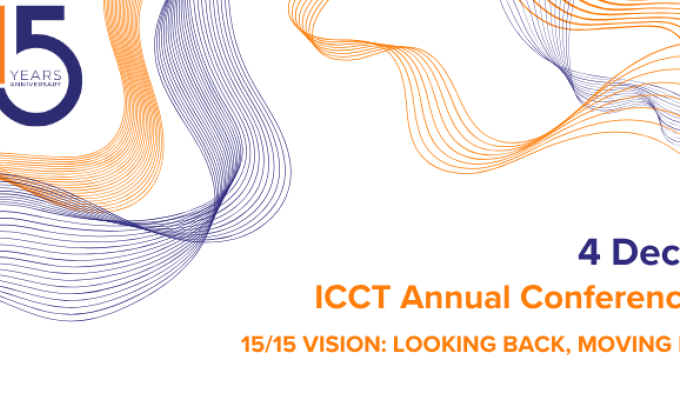Amidst ongoing reflection on the lessons learned over the two decades since 9/11, the Taliban's rapid capture of all major cities in Afghanistan has thrust the group back to the centre of global attention. Re-taking control of the country with far greater speed than expected following the United States’ announcement that all US troops would be pulled out of Afghanistan by 31 August, the international community has been caught off guard. This is clearly demonstrated by the chaotic evacuations of foreign nationals and Afghan allies from Kabul airport, still ongoing at the time of writing, but with the window for escaping the country quickly closing. There undoubtedly will be much reflection on—and condemnation of—how the international community handled the situation in Afghanistan, not only over the twenty years of occupation, but also in regards to the problematic negotiations with the Taliban that allowed for them to rapidly take control of the country. For now, however, the crucial question of what the Taliban will do remains at the forefront of the international community’s attention. During the historic press conference held on 17 August, Taliban spokesperson Zabihullah Mujahid sought to give reassurances of the peaceful intentions of the Taliban, emphasising that they aim to establish an all inclusive government, in which women’s rights would be respected within the framework of Sharia law. Despite these reassurances, specific details provided were thin, and countless questions about the implications of the Taliban seizing control of Afghanistan remain. This perspective sheds some light on the aspirations of the Taliban to gain recognition, the legal obligations to prevent and suppress terrorism, and what threats the group may pose to international and national security, in particular to the Afghan citizens.
Obligation to prevent and suppress terrorism?
Two years prior to 9/11, the Taliban was designated as a terrorist organisation by the United Nations, as a result of providing a safe haven for terrorists, including Osama Bin Laden. Acting under the authority of Chapter VII of the UN Charter, Security Council Resolution (UNSCR) 1267 imposed a series of obligations on all States to counter the Taliban, including freezing funds and other financial resources owned by the Taliban, and ensuring that no financial resources be made available to or for the benefit of the group. The resolution also requires States to prohibit any airplane owned or operated by the Taliban from departing or landing in their territory. Further sanctions were imposed in 2000 under UNSCR 1333, including a prohibition on the sale or provision of arms to the Taliban, providing technical, financial, or training assistance for military activities to the Taliban, and a travel ban for senior Taliban officials. As emphasised in the Resolutions, underlying the sanctions regime against the Taliban was the “deep concern over the continuing violations of international humanitarian law and of human rights, particularly discrimination against women and girls” and the Taliban’s continued “sheltering and training of terrorists and planning of terrorist acts.” Moreover, both Resolutions stress the conviction that “the suppression of international terrorism is essential for the maintenance of international peace and security.” These concerns remain as relevant in 2021 as they were in 2001, making it vital that any response to the Taliban will seek to ensure that Afghan territory is not used to shelter terrorist groups, which seems unlikely in light of their close links with not only al-Qaeda, but also with groups such as the Haqqani Network and other regional terrorist groups. Somewhat paradoxically, the United States has never designated the Taliban as a foreign terrorist organisation (FTO) under domestic law, although the US Department of the Treasury did freeze Taliban assets in 1999. The decision appears to have been made for political reasons, which ultimately allowed the US to engage in negotiations with the group in Doha, as the Taliban clearly meet the criteria to be listed: it is a foreign organisation, it engages or retains the capability and intent to engage in terrorism, and threatens the security or economic interests of the United States or its nationals. As a result of the UN’s designation, however, in order for the political leaders of the Taliban to meet in Doha for the 2019 peace negotiations, the UN Sanctions Committee granted them temporary travel exemption. The international legal framework, set out in UNSCR 1373 and other instruments, make it clear that all Member States have the obligation to “combat by all means, in accordance with the Charter of the United Nations, threats to international peace and security caused by terrorist acts.” Among the many obligations for states to act include a wide range of efforts, including refraining from providing any active or passive support to persons involved in terrorist acts, taking steps to prevent the commission of terrorist acts, and to denying safe havens to those who would carry out terrorist attacks. Given the Taliban’s past willingness to shelter terrorist groups and provide a base for the planning of terrorist attacks, as well as its continued relationship with al-Qaeda, among others, it would be problematic from a counter-terrorism lens for States to recognise the Taliban as the government of Afghanistan in light of the legal obligation to prevent and suppress terrorism.
A threat to international security?
As recently as June 2021, a UN report warned: “a significant part of the leadership of Al-Qaida resides in the Afghanistan and Pakistan border region [...] Large numbers of Al-Qaida fighters and other foreign extremist elements aligned with the Taliban are located in various parts of Afghanistan. [...] Ties between the two groups remain close, based on ideological alignment, relationships forged through common struggle and intermarriage.” Despite pledges to stop cooperating with terrorist groups, the Taliban have maintained their links with al-Qaeda, often through the Haqqani Network, designated in 2012 as an FTO and whose leader Sirajuddin Haqqani is the deputy leader of the Taliban. Haqqani remarkably published an op-ed 'What We, the Taliban, Want' in the New York Times in February 2020, illustrating how interconnected these two terrorist groups are. In light of these enduring links between the Taliban and terrorist groups, there is a very real, and even likely, possibility that Afghanistan will once again become a haven for terrorist organisations who seek to carry out international attacks. Ignoring this threat poses a significant risk to the international community. Moreover, even if the Taliban does not actively permit the use of Afghan territory for terrorist operations, many have questioned whether the group would even have the ability to deter terrorist groups from establishing their presence in the country if it wanted to. While the Taliban’s central leadership have conveyed that they have a predominantly domestic agenda, there remain concerns over whether the political leaders of the Taliban have effective control over, and can speak on behalf of, the generals and fighters on the ground throughout the country. Several of the top leaders, including deputy leader Mullah Abdul Ghani Baradar, have been living abroad and have only just returned to Afghanistan, and there seems to be a gap between the unified front the Taliban displays internationally and the internal reality of the group. Internal tension between the political and military wings will be important to follow, as well as monitoring whether the Taliban can establish a unified government in the country. Some of their military commanders such as Sadr Ibrahim and Mullah Zakir have built their own forces and have been resistant to contributing troops when asked by the Taliban leadership. Such commanders may have a very different outlook on the actions of the group, in contrast to central leadership, which may lead to factions of the Taliban providing safe harbour for terrorist groups, even if the central leadership does not. Notably, the Taliban’s capacity to actually control whether or not terrorist groups use Afghanistan as a base not only relates to al-Qaeda and its affiliates; the Islamic State in the Khorasan (ISKP), an enemy of the Taliban estimated to have 2500 fighters in Afghanistan, remains a significant threat. Although ISKP has suffered significant losses including six of its leaders, ISKP could rebound and is capable of carrying out terrorist attacks. Even if the Taliban does not directly support or faciliatate terrorist acts against the international community, its so-called victory has not gone unnoticed among the many jihadi terrorist groups worldwide. Across the globe, from Hamas, to al-Shabaab, to Mali’s al-Qaeda affiliate, JNIM, jihadist groups have been celebrating and praising the Taliban’s ouster of US and NATO forces. Whether the speed at which the Taliban took control will inspire and empower the terrorist groups further afield and lead to more terrorist attacks will have to be carefully monitored, which will in turn put more pressure on intelligence services.
A threat to national security and violations of human rights
In addition to the threat the Taliban poses to international security, the group undeniably poses a significant threat to the domestic Afghan population. Following the signing of the US-Taliban deal in February 2020 and the launch of the intra-Afghan talks in September 2020, violence committed against civilians increased—a result at least in part of the US failure to condition negotiations on a reduction in violence, allowing the Taliban to use attacks against both civilian and military targets as a bargaining chip. Under the US-Taliban deal, the US agreed to withdraw its forces from Afghanistan within 14 months in exchange for the Taliban’s pledge not to allow Afghanistan to become a safe haven for terrorists and to engage in intra-Afghan peace talks, which included a cease-fire with the government. However, the agreement was heavily criticised by those paying attention for not including any means to either measure or enforce the Taliban’s side of the bargain. Since the announcement and subsequent withdrawal of the US and international forces in April 2021, the Taliban has been advancing, first in the rural areas and more recently started attacking urban areas. According to the UN Assistance Mission in Afghanistan (UNAMA), the civilian casualties increased by nearly 50 percent in the first five months of 2021, mainly by non-suicide IEDs and targeted killings. These casualties cannot all be attributed to the Taliban, but also to other parties to the conflict, such as the government forces and ISKP. The bombing of the Sayed ul-Shuhada school on 8 May 2021 resulted in the death of 68 civilians, mainly Shia school girls from the Hazara community. The Taliban denied any responsibility for this attack, but it appears that Hazara community are being targeted not only by the Taliban but also ISKP. Human right defenders, influencers, activists for women’s rights and journalists have severely been targeted by the Taliban, including members of the Afghan Independent Human Rights Commission. Although the Taliban sought to quell fears during its the press conference by stating that everyone who worked with the Afghan government, the US or other foreign forces would be granted amnesty, a confidential report from the Norwegian analysis center Rhipto, which provides intelligence to the UN, indicates that the Taliban continues to maintain a blacklist of persons who collaborated with the US or other foreign forces. Reports of the Taliban already conducting door-to-door searches for the listed persons in Kabul are rife, with reprisals already being carried out in rural areas for some time. The number of protests against the Taliban that are met with violence is also increasing. This all is a strong indication that the Taliban is not planning to keep its promises in regards to upholding the human rights of its citizens. As a result of the increased violence, the number of Afghans that are fleeing is immense. Nearly 400,000 Afghans are now internally displaced, of which 80 percent are women and children. Despite the recent events, six EU countries are insisting to continue with forced deportation of Afghans to Afghanistan against the non-return advisory issued by the UN Refugee Agency. Such deportations are likely in violation of the non-refoulement principle, which does not allow expulsion if the persons would be at risk of irreparable harm upon return, including persecution, torture, ill-treatment or other serious human rights violations. France’s President Macron indicated that the flow of migrants to Europe should preferably be contained by transit countries such as Iran, Pakistan and Turkey. While a few western countries such as Canada and the UK have indicated a willingness to settle up to 20,000 Afghan refugees each, it seems likely that, much like the Syrian refugee crisis, it will be the neighbouring countries who will receive the vast majority of refugees. This may be cause for concern in some cases, such as with Iran—who already houses one of the largest refugee populations in the world, the majority of whom are Afghan—who has stated that it will set up temporary accommodation, but will repatriate Afghans “once conditions improve”. Given Iran’s alleged previous violation of the principle of non-refoulement for Afghans, there is cause for concern that the country, which is a party to the 1951 Refugee Convention, will not uphold the rights of the newest Afghan refugees. Preventing human rights violations is crucial, but documenting the human rights abuses is just as important to bring the perpetrators to justice. Although at this stage it is not clear where and how the perpetrators are going to be held accountable, it is vital that the human rights violations and abuses are being documented. This does not only pertain to the recent violations after the announcement and withdrawal of the US and foreign forces, but also pertains to securing documentation that has been collected over the past two decades concerning human rights abuses in Afghanistan. From the experience drawn from the conflict in Syria, it is crucial that relevant information is collected from the battlefield in a rule of law compliant manner - also referred to as battlefield evidence - which could serve as evidence before national courts or the International Criminal Court. Several of the human right abuses could be prosecuted as terrorism crimes or when they meet the threshold as international crimes. In fact, the legitimate government of Afghanistan submitted a deferral request on 26 March 2020 to the International Criminal Court (ICC) on the basis that it has or is investigating the same crimes that come within the jurisdiction of the ICC, which its Prosecutor has indicated that it wishes to investigate.
Conclusions
For centuries Afghanistan has resisted foreign rule, fending off occupation by Alexander the Great to the former Soviet Union to Russia, to British rule, and perhaps also the American troops. But it has also posed significant challenges for domestic rule: from the first President Daoud up and until the most recent President Ghani, none have been able to bring unity to the country’s many ethnic groups, nor stability to the country. A more savvy Taliban may now be presenting itself as unified and moderate, capitalising on US fatigue after twenty years of occupation with little progress, but much like the Taliban of the late 1990s and early 2000s, the Taliban as it stands today has close ties to multiple terrorist groups, big and small, who operate within and across the border of Afghanistan to carry out terrorist attacks. So far their track record in respecting human rights is very poor and it seems inevitable that the efforts made over the last two decades to advance the rule of law and women’s rights, to create a vibrant civil society, and advance the freedom of expression will be lost. The coming weeks will be crucial to see whether the Taliban will honour the commitment to engage in an intra-Afghan dialogue and possibly emerge as a (slightly) more moderate group than in the past. As a number of States contemplate whether or not to recognise the Taliban as the legitimate government of Afghanistan, particularly the permanent Security Council members China and Russia, they must keep in mind the obligations they have under international law to prevent and supress terrorism and to implement sanctions on designated terrorist organisations. As UN Secretary General Guterres has emphasised, the only leverage the international community may have over the Taliban is their desire for international recognition, which must be used to insist on an inclusive government, respect for human rights, and the suppression of terrorism. With credibility of the US and its NATO allies already diminished by the poorly planned withdrawal from Afghanistan, the international community will further lose credibility if it only preaches about human rights but fails to act immediately to protect the lives and human rights of the Afghan people. After twenty years, with the Afghan people, in particular women, pleading to not again be left at the mercy of the Taliban, now is not the time to turn a blind eye and walk away. Allowing economic and political considerations to outweigh the imperative to address the increased risk of international terrorism under the Taliban will be a further blow to the counter-terrorism and the rule of law efforts that the international community has been pursuing for the last twenty years, and risks emboldening other terrorist groups across the globe.









